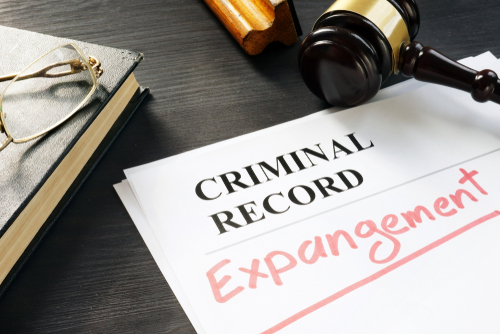
Being convicted of a crime or merely being arrested for a crime can have unexpected, long-lasting adverse effects on people’s lives. This is because records of convictions or arrests are public record, and, therefore, can be seen by anyone who does any background research at all on a person. In New Jersey, there is a process by which people who have sustained a criminal conviction or who have been arrested or charged with crimes that have later been dismissed can have the specific records of their convictions, arrests, or dismissal of charges removed from public record. This process is called expungement. Below, we provide you with a brief summary of the expungement laws in New Jersey and specific reasons why you should consider getting an expungement.
What is an Expungement?
According to N.J.S.A. 2C:52-1, expungement means “the extraction and isolation of all records on file within any court, detention or correctional facility, law enforcement or criminal justice agency concerning a person’s detection, apprehension, arrest, detention, trial or disposition of an offense within the criminal justice system.” Stated differently, expungement is the legal process by which one can secure the destruction of all public records relating to a specific conviction, arrest, or a dismissed criminal charge. In order to obtain an expungement in New Jersey, one must file a petition with the New Jersey court in which he or she was convicted of the offense, was charged with crimes that were later dismissed, or, if simply requesting removal of an arrest record, the court which has jurisdiction over the arresting authority.
While people can file expungement petitions in New Jersey courts to remove specific convictions, criminal charges, or arrests from their records, it does not mean that the petition will be granted. According to the New Jersey statutes that govern the New Jersey expungement process, N.J.S.A. 2C:52-1 through N..J.S.A. 2C:52-32.1, those who have prior or subsequent criminal records may not be able to get a specific conviction expunged and some criminal convictions are considered summarily ineligible for expungement. Examples of convictions that are ineligible for expungement include criminal homicide convictions, kidnapping convictions, and certain criminal sexual contact offense convictions.
Why Obtain an Expungement?
Because criminal convictions, criminal charges, and arrests are public record, people who have criminal convictions, have been charged with criminal offenses that were later dismissed, or have been arrested may find themselves in a bind when it comes to securing employment, housing, or higher education.
With respect to employment, most employers now require prospective employees to undergo criminal background checks before the employer will hire them. If the criminal background check reveals that a specific prospective employee has been convicted, charged, or arrested for a crime, the employer may be deterred from hiring that prospect or another prospect who has no criminal record even though the prospect with the criminal history is more qualified. Obtaining an expungement would prevent this type of scenario from happening as it would prevent the person who conducts the criminal background check from viewing or finding records related to a person’s criminal history.
With respect to housing, many rental properties require potential tenants to also undergo criminal background checks. If the check reveals that prospective tenants have a criminal history, then this is a viable reason to not rent to that person. Securing an expungement would likely prevent the criminal background history from revealing negative results.
With respect to be admitted to a higher education institution, people must usually disclose if they have had any run-ins with the law on their applications. Once the applications are submitted, higher education institutions often check the answers provided on the applications by performing criminal background checks on their applicants. If this check reveals that an applicant has a criminal history, higher education institutions may reject the applicant’s application. Obtaining an expungement will likely prevent higher education institutions from viewing this type of negative information.
Contact an Experienced Moorestown Criminal Defense Lawyer About Getting an Expungement in New Jersey
Were you arrested or charged with crimes in New Jersey? The consequences of a conviction could be severe, leaving you with a permanent criminal record. That is why you need to speak with a qualified criminal defense attorney as soon as possible after you are arrested or charged with a crime. The attorneys at The Law Offices of Stephen R. Piper LLC have successfully secured expungements for clients arrested and charged with crimes in Moorestown, Burlington City, Camden, Haddonfield and throughout New Jersey. Call 856-333-3586 or fill out the online contact form to schedule a consultation with a member of our legal team.
The articles on this blog are for informative purposes only and are no substitute for legal advice or an attorney-client relationship. If you are seeking legal advice, please contact our law firm directly

